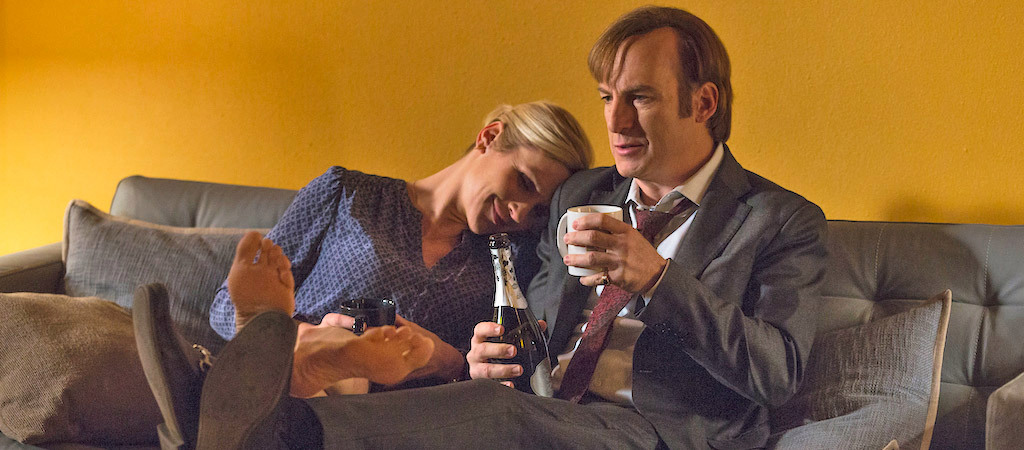I have been watching Better Call Saul and Breaking Bad for years now, and I read nearly every interview, and I listen to nearly every podcast. In that time, I’ve rarely (if ever) heard anyone express anything more than appreciation for the opportunities, for the exceptional writing, and for the exceptional talent both in front of and behind the camera. Everyone who works on Better Call Saul and Breaking Bad speaks about what a dream job it is, and how much they love working for Vince Gilligan and Peter Gould, who are likewise nothing but complimentary of the people who work for them.
All of that can be 100 percent true, but so is this: it’s really hard work. We often hear about how meticulous Gilligan and Gould are, and we know that the writers spend six months in the writer’s room for every season, that every prop is considered, and that every line out of every actor’s mouth is important to the story. What we don’t often consider, however, is the human toll that level of exactitude can take.
It’s why it came almost as a welcome surprise when Bob Odenkirk — speaking, again, to Michael Rosenbaum on the Inside You podcast — talked at length about how challenging the work on Better Call Saul is, and how tense and stressful (especially) the first season was to shoot.
“We rehearse the sh*t out of [the show],” Odenkirk explained to Rosenbaum, adding that he, Rhea Seehorn, and Patrick Fabian all live in a house together, in part to make it easier to rehearse together even when they’re not on set (Michael Mando and Jonathan Banks often come by, as well). They begin rehearsal on a script as soon as they receive it, often up to two weeks in advance, in part because they have to shoot an entire 50-55 page script in 9 days. Seehorn and Odenkirk, in particular, also tend to have a ton of lines to memorize — one-to-two-page speeches, at times — and because every word matters, they have to memorize the scripts exactly as they are written. “We need to learn our lines because they matter. There may be some weird little thing buried in the middle of your lines that looks like nothing but a year later” it resurfaces in another episode.
Odenkirk went on to explain that he hit a wall in the first season, in part because he was in nearly every scene of every episode. “It was just a f**kload of words.” He explained that, in that first season, the producers kept extending his work hours, over and over, and he didn’t know until around the fifth or sixth episode that he had the authority to say no until they asked him to stay and work through the weekend. When he finally put his foot down and asked an assistant director if he was allowed to say no, the director said to him, “I think the crew [which was also overworked] would appreciate it if you said no.” He realized then that the whole crew probably thought he was an “a**hole” for making them work such long hours, though he had no idea at the time that he could control it.
After that, Odenkirk says, he got on top of it. Even still, by the end of that first season, he was completely exhausted. “I was all f**ked up. All f**ked up, and I didn’t even realize it. I got home,” he said, “and my wife and daughter had picked out an awesome f**king dog that I love so much and I just spent the next four months, all day, every day, hanging out with that dog. It saved me. I had no idea what dogs can do for you. She was like a medicine for the degree of stress and tension that I made my way through.”
As rewarding as it must be to make one of the best show on television, it is clearly challenging and exhausting. Someone give Odenkirk (and Rhea Seehorn) an Emmy already. They clearly deserve it.







